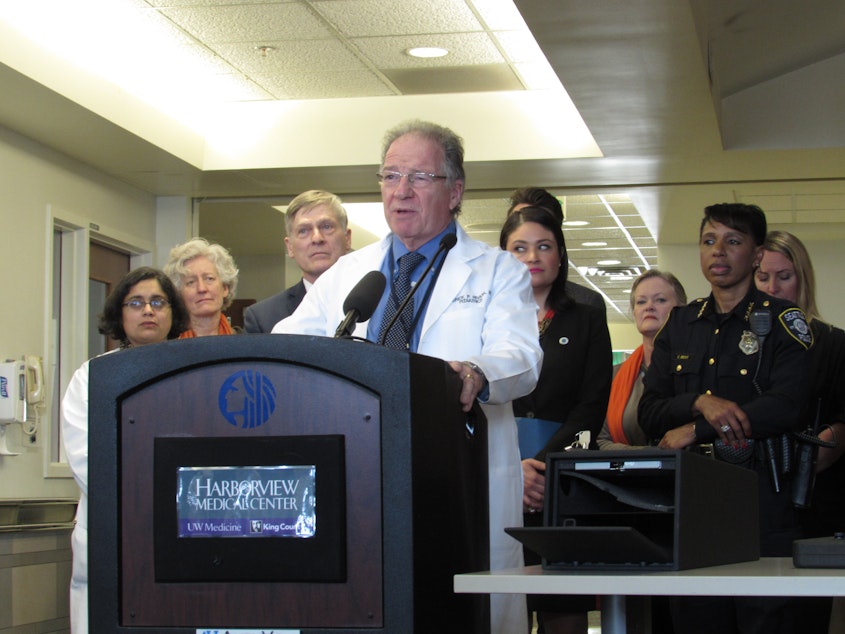'Lock it up.' That's just one way Seattle wants to curb gun violence

Washington state law generally prohibits local governments from overstepping state gun regulations. But Seattle officials say there are still measures they can take to curb gun violence.
Seattle mayor Jenny Durkan and city council member Lorena Gonzalez said they'll meet with gun owners and other stakeholders as they develop “safe storage” legislation. The proposal would require that firearms be stored in lockboxes in the home, as well as increase the penalties for failing to report guns lost or stolen.
Durkan said that with young people in Seattle — including her son — marching for solutions to gun violence, she wants Seattle to do more to address the crisis.
Speaking at Harborview on Wednesday, Durkan said she’s confident the safe storage legislation will hold up in court.
“Everyone can still own a gun, they can still carry a gun, they can still transport their gun,” Durkan said. “But if you leave it behind, you’ve got to lock it up. So we are not infringing on a single right guaranteed under state law or under the state or federal constitutions.”
Sponsored
The courts did strike down Seattle’s ban on guns in parks and community centers in 2012. But a city tax on guns and ammunition was allowed to go forward.
Durkan said tax proceeds will be used to fund gun-safety research at Harborview.
Pediatrician Fred Rivara has treated children and adolescents who were injured when they got access to guns in their own homes.
“We know that safe storage can prevent these tragedies,” he said. “A study here at the Harborview Injury Prevention and Research Center found that safe storage of guns decreased the risk of both accidental injuries and suicides to youth by 73 percent.”
Rivara said the study found that storing ammunition decreased the risk of injury even further. He noted that the school shooting at Marysville-Pilchuck High School in 2014 involved unsecured guns belonging to the shooter’s father.
Sponsored
King County and Seattle are also funding efforts to make sure domestic abusers and people in crisis surrender their guns under existing laws.
Seattle Police Chief Carmen Best said her officers have served about twenty “extreme risk protection orders” (or ERPOs), which led to the seizure of about 70 guns from people deemed a risk to themselves or others. The orders were approved by voters in a 2016 ballot initiative.
“This system works,” Best said. “In one case a man threatened to shoot members of his church. The resulting investigation and ERPO led to criminal charges and to the seizure of an AR-15."
She added: "In another case, a man who had been served with an ERPO order tried to defeat the system and buy a new gun. His purchase was flagged and the transaction was denied, and charges were forwarded to the prosecuting attorney’s office.”
The orders last for up to a year.
Sponsored
“I can’t help but think how things might have been different had ERPO existed six years ago when the Café Racer tragedy occurred," Best said. “A timely order and a gun removal order could have saved the lives of six men and women.”
Seattle City Council member Lorena Gonzalez said she will sponsor the safe storage proposal. She expects to introduce the measure in April.

